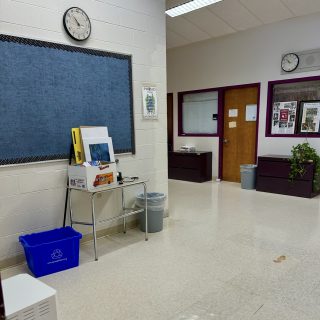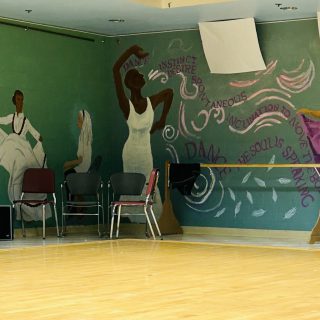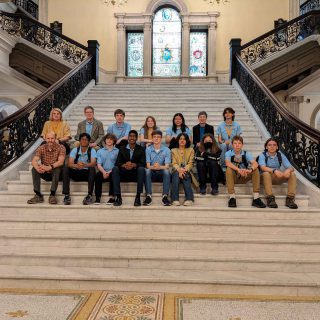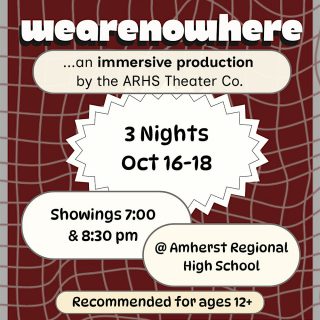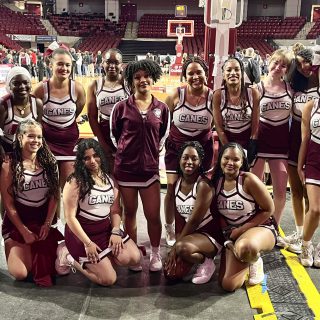New Writing About Music class set to hit earbuds this spring

Starting this spring, ARHS will offer a new quarter-long English class: Expository Writing: Writing About Music, taught by English teacher Matthew Despres, who has worked at ARHS since 2017.
This senior writing course will feature multiple ways to write about music. Students will write comparatively, critically, journalistically, and even do a “whole album analysis” where they choose an album that they love and look at everything from the cover art to the lyrics and the album’s production.
This class is “like a dream” for Despres because of his lifelong love for music. During college, Despres was a music journalist writing for the UMass newspaper, The Massachusetts Daily Collegian. His writing was primarily focused on artist interviews as well as music-related features about different events and scenes. Elements of this will be incorporated into the curriculum.
The goal for Despres was to create a class that “functions as a space to talk and think about music because of its role in everyone’s lives.”
The process of having this class approved took almost two years. Historically, there used to be three writing electives in the English department: Journalism, Creative Writing, and Expository Writing. During the pandemic, enrollment lowered in the existing Expository Writing, so it was not offered for a few years, but over that time, Despres worked on an innovative curriculum under the Expository Writing umbrella centered on music, allowing the course to be folded back into the curricular offerings.
The class will be offered to seniors, starting with quarters three and four this year. The goal of the class is to explore a new type of music each week while also allowing room for students to learn more about what they’re already interested in.
The curriculum will also connect how each genre or era of music has created the next, exploring the evolution of music.
Music is very important to Despres. He listens to many different genres, mostly based off of the mood or season. Some of his favorites are Bob Dylan, A Tribe Called Quest, and Lauryn Hill. Like everyone else, the music that he was exposed to played a major role in forming who he is. “Music helped me find my identity, from the way I dressed to my worldview,” he said. “[Music] makes people feel good. It’s there for you when you need it.”
Music is more important than just something for fun, it also tells a story, he also added, one deeply connected to American history. “One story [music] tells is the essential communication of enslaved people. In some ways, this was a foundation of so much of what we still listen to,” said Despres. “People needed a way to communicate with each other, and then it goes from communicating to spiritual and religious songs, and then it kind of moves into entertainment.”
He said not only does music tell the story of racial identity, but of gender identity and other forms of expression, and he noted that popular music was once mostly male-dominated but began to–and still includes–many more gender-expressive bands.
The main text students will reference in the class is How to Write About Music. They will also read journalistic writing about music. Some writers in the class that students will become acquainted with include Hanif Abdurraqib, Jessica Hopper, and Questlove. They will listen to many music podcasts, as well, such as Object of Sound, Song Exploder, and artist-specific shows like Fela Kuti: Fear No Man.
Finally, they will read and listen to lots of music. “Music itself will be the primary text for the class,” said Despres.

